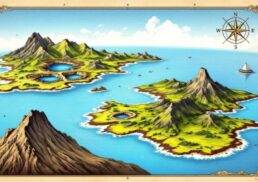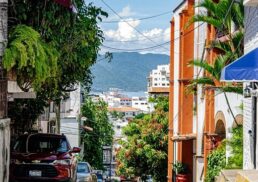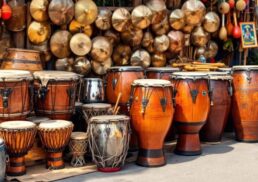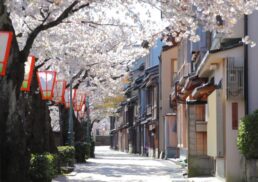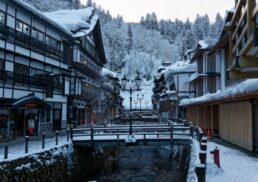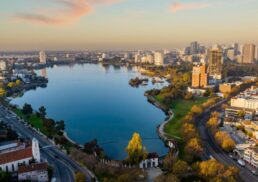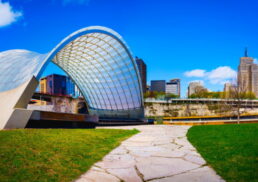The United Arab Emirates (UAE) consists of seven emirates in UAE: Abu Dhabi, Dubai, Sharjah, Ajman, Umm al-Quwain, Ras al-Khaimah, and Fujairah. Each emirate has its own unique features. This article will explore the history, culture, and key attractions of these emirates.
Table of Contents
Key Takeaways
The United Arab Emirates (UAE) comprises seven emirates: Abu Dhabi, Dubai, Sharjah, Ajman, Umm al-Quwain, Ras al-Khaimah, and Fujairah, each offering unique cultural, historical, and natural attractions.
Abu Dhabi and Dubai are the standout emirates, with Abu Dhabi known as the economic powerhouse due to its large oil reserves and significant contributions to the country’s GDP, and Dubai renowned for its rapid development into a global city with top-tier tourism and business infrastructures.
Smaller emirates like Sharjah, Ajman, Umm al-Quwain, Ras al-Khaimah, and Fujairah contribute to the UAE’s rich cultural and natural diversity, with Sharjah noted for its cultural initiatives, Ajman for its historical significance, Umm al-Quwain for its tranquil nature reserves, Ras al-Khaimah for adventure activities, and Fujairah for its picturesque landscapes.
The United Arab Emirates: An Overview
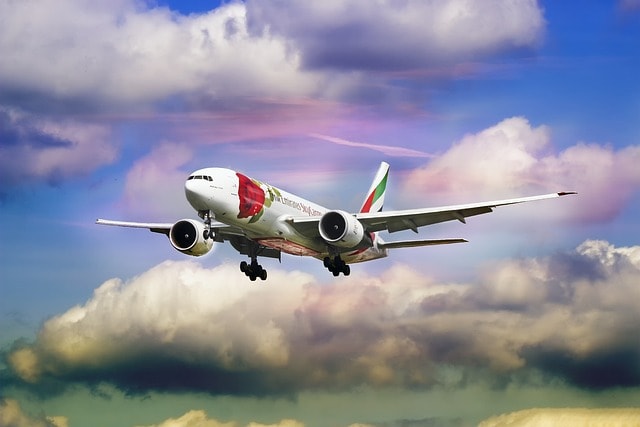
The United Arab Emirates (UAE) became a federation on 2nd December 1971. It united seven emirates:
Abu Dhabi
Dubai
Sharjah
Ajman
Umm al-Quwain
Ras al-Khaimah
Fujairah
Located in the Southeast of the Arabian Peninsula, the UAE borders Oman and Saudi Arabia, and boasts a diverse landscape of rocky deserts, coastal plains, wetlands, and mountains, with a coastline stretching nearly 650 km along the eastern coast of the Persian Gulf.
The UAE’s desert climate features scorching summers, particularly in July and August. Renowned for its modern infrastructure and status as a trade and transport hub, the UAE is a beacon of progress in the Arab world.
Abu Dhabi: The Heart of UAE
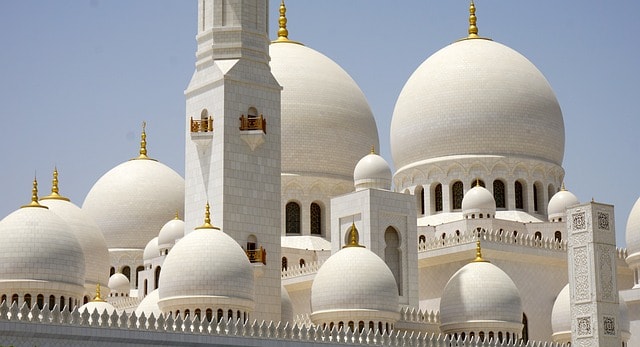
Abu Dhabi, the capital city and the largest emirate, constitutes approximately 87% of the UAE’s total land area. Known for its safety and security, Abu Dhabi is not only an economic powerhouse but also a cultural and natural gem.
From the grandeur of the Sheikh Zayed Grand Mosque to the lush Al Ain oasis, Abu Dhabi offers a blend of modernity and tradition that captivates visitors.
Economic Powerhouse
Abu Dhabi’s economy, heavily reliant on oil and gas, significantly contributes to the nation’s GDP, making it a vital pillar of the UAE’s prosperity. Holding around 95% of the UAE’s total oil reserves, Abu Dhabi is one of the wealthiest cities in the world.
Although it has been more conservative in its economic diversification compared to Dubai, Abu Dhabi remains a crucial driver of the UAE’s economy, balancing traditional energy sectors with emerging industries.
Cultural Highlights
Abu Dhabi, home to the magnificent Sheikh Zayed Grand Mosque and the visionary leadership of Sheikh Khalifa, stands as a cultural beacon. This architectural marvel can accommodate around 40,000 worshippers and serves as a testament to the emirate’s rich Islamic culture and heritage.
Visitors can also explore the Louvre Abu Dhabi, an iconic museum that bridges Eastern and Western art and history, further cementing Abu Dhabi’s status as a cultural hub in the major regions.
Natural Attractions
Nature enthusiasts will find solace in the Al Ain oasis, an important natural attraction in Abu Dhabi. This verdant sanctuary in the midst of the desert is maintained by an ancient irrigation system known as falaj.
The oasis is a testament to the ingenuity of traditional Emirati water management and provides a lush, green escape from the arid surroundings, making it a must-visit for those seeking a connection with nature.
Dubai: The Global City
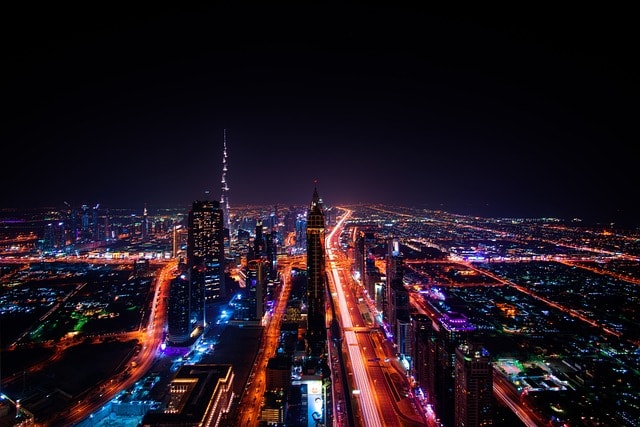
The transformation of Dubai from a modest fishing village into a global city is indeed extraordinary. This vibrant emirate, strategically located between Europe, Asia, and Africa, has become a hub for trade, tourism, and innovation. Known for its iconic skyscrapers like the Burj Khalifa, luxury tourism industry, and advanced infrastructure, Dubai is a testament to resilience and adaptability.
Tourist Attractions
Dubai’s status as the top tourism destination in the Middle East is well-earned, holding 66% of the UAE’s tourism economy. The Burj Khalifa, the tallest building in the world at 828 meters, offers breathtaking views and is a major tourist draw.
The Palm Jumeirah, an iconic man-made island, and the Dubai Mall, one of the largest shopping malls globally, further enhance Dubai’s reputation as a luxury destination.
Business and Innovation
Dubai boasts a diversified economy, encompassing industries such as:
exhibitions
events
ICT
re-export
financial sectors
The city offers free zones where businesses enjoy 100% foreign ownership and tax exemptions, making it an attractive location for foreign workers.
Initiatives like the Dubai Smart City project and the Dubai Blockchain Strategy aim to position Dubai as one of the world’s most technologically advanced cities. The DIFC Fintech Hive, the region’s largest fintech accelerator, underscores Dubai’s commitment to innovation.
Events and Festivals
Dubai has gained a reputation as a hotspot for international events and festivals. Some notable events and festivals in Dubai include:
The Dubai Shopping Festival, which attracts visitors with discounts, entertainment, and cultural activities
Expo 2020, a landmark event showcasing global innovation and culture
Significant international cricket tournaments
The COP28 international climate summit
These events and festivals contribute to Dubai’s vibrant and diverse cultural scene.
The city continues to be a vibrant center for tourism and cultural exchange.
Sharjah: The Cultural Capital

Sharjah, recognized by UNESCO as the Cultural Capital of the Arab World in 1998, continues to uphold its commitment to preserving Emirati heritage. The emirate’s unique architecture and extensive cultural initiatives reflect its commitment to maintaining its cultural prominence.
From literary festivals to art exhibitions, Sharjah offers a rich tapestry of cultural experiences for residents and visitors alike.
Museums and Art
Home to over 5,000 artifacts, the Sharjah Museum of Islamic Civilization exhibits the rich history and artistry of Islamic culture. The Sharjah Art Museum houses collections from artists across the Arab world, highlighting regional artistic achievements.
The Sharjah Art Foundation supports contemporary artists with exhibitions, residencies, and educational programs, fostering a vibrant art scene.
Family-Friendly Spots
Families will find plenty to enjoy in Sharjah, from Al Noor Island, which offers a blend of nature, art, and entertainment, to the educational and interactive experiences at Sharjah Aquarium.
Al Montazah Parks provide thrilling water rides and attractions, making them a favorite destination for family outings.
Ajman: Blend of Tradition and Modernity
Despite being the smallest emirate, Ajman offers a compelling mix of cultural heritage and modern amenities. The emirate features modern landmarks like the Etisalat Tower and traditional architecture made from coral stone and gypsum.
Recent refurbishments of the Ajman Museum highlight the emirate’s rich history more engagingly.
Historical Significance
Housed in an 18th-century fort, the Ajman Museum displays a variety of artifacts, including manuscripts, weaponry, and pottery. This fort, which once served as a stronghold and the ruler’s residence, now provides insights into the emirate’s history with exhibits on traditional medicine, farming tools, and artifacts dating back to 3000 BC.
The museum also features a souq exhibit that uses sound effects to recreate old market scenes.
Coastal Beauty
Ajman Beach is a popular destination for sunbathing, swimming, and water sports, offering pristine shorelines and clear waters.
The Ajman Corniche, a picturesque waterfront area, is perfect for leisurely strolls with stunning views of the Arabian Gulf.
Umm Al Quwain: Tranquil Escape
Umm Al Quwain, known for its tranquil environment, serves as an ideal spot for relaxation. This tranquil emirate offers a haven for both water and land activities, contributing to its laid-back atmosphere.
Natural Reserves
Al Sinniyah Island is a prime destination for spotting migratory birds, including seagulls and flamingos. This natural reserve spans nearly 10 km and is particularly appealing during the relatively warm winter months.
The emirate also boasts other reserves like Ajman’s Al Zorah Nature Reserve, teeming with biodiversity.
Water Activities
Umm Al Quwain is renowned for its excellent fishing waters, hosting species like sherry, hamour, and barracuda. The emirate offers a variety of water activities including sailing and kayaking.
Crab hunting is a unique experience here, with participants using under-lit, glass-bottomed boats to catch blue crabs for a BBQ supper.
Ras Al Khaimah: Adventure Awaits
Ras Al Khaimah (RAK) invites with a mix of nature-infused experiences, outdoor activities, and historical sites. From hiking in the Hajar Mountains to exploring ancient forts, RAK is a haven for adventure enthusiasts and history buffs alike.
Outdoor Adventures
The Jais Sky Tour offers an adrenaline-inducing experience with breathtaking views from the top of Jebel Jais. It includes:
The Jais Sledder, which reaches speeds of up to 40 km/h on a low-slung track
The Jais Ropes Course, which provides a thrilling hour-long experience over a two-level rope and bridge course
The Jais Flight, the world’s longest zipline, which offers a thrilling ride over mountain peaks.
The Al Wadi Equestrian Adventure Centre offers horseback riding amidst the rolling red dunes of Ras Al Khaimah.
Historical Sites
Dhayah Fort, a prominent historical site included in the UNESCO World Heritage Tentative List, holds significant historical importance due to its strategic location and role in historical battles.
The National Museum of Ras Al Khaimah houses artifacts that chronicle the emirate’s rich history, providing insight into its cultural and historical development.
Fujairah: Nature’s Playground
Fujairah, with its rugged landscapes encircled by the Al Hajar Mountains and a 70-kilometer coastline along the Gulf of Oman, offers distinct scenery. This emirate is a haven for nature lovers and adventure seekers, offering picturesque lakes, water bodies, and nature trails that provide opportunities for boating, kayaking, and hiking.
Scenic Landscapes
The Hajar Mountains in Fujairah are known for their rugged and dramatic terrain, contributing to the emirate’s scenic beauty. Fujairah’s pristine beaches, with their clear waters and soft sands, are perfect for relaxation and various water activities.
Nature trails cater to different skill levels and offer breathtaking views of waterfalls and unique rock formations.
Cultural Landmarks
Fujairah Fort, built in the 16th century, is one of the oldest and largest castles in the UAE. The Al-Bidyah Mosque, dating back to 1446 AD, is the oldest mosque in the UAE and a significant cultural landmark.
These historical sites offer a glimpse into the rich heritage and architectural prowess of the region.
Life in the UAE: Demographics and Society
The UAE’s population represents a vibrant blend of cultures, with immigrants playing a significant part in the UAE population. The diverse population in cities like Abu Dhabi and Dubai reflects the UAE’s openness and cosmopolitan nature.
Arabic is the official language, and Islam is the official religion, deeply influencing the country’s cultural and societal norms.
Population Diversity
Abu Dhabi is home to more than 200 nationalities, showcasing a rich cultural diversity. Dubai’s vibrant multicultural environment is bolstered by a significant expatriate population, with leading nationalities including Indians, Pakistanis, and Filipinos. This diversity contributes to the dynamic and inclusive society that defines the UAE.
Languages and Religion
Modern Standard Arabic is the national language of the UAE, while Emirati Arabic is the variety spoken natively by Emiratis. Islam, particularly Sunni Islam, is practiced by the majority of the population, shaping the country’s cultural and societal framework.
The spread of Islam to the northeastern tip of the Arabian Peninsula dates back to the 7th century, marking a significant historical transformation.
Economy and Infrastructure
The economy of the UAE ranks among the largest and fastest-growing in the Middle East. In 2023, the UAE’s GDP stood at AED1.68 trillion, with non-oil sectors contributing 74.3% to the GDP. The country has implemented various initiatives to diversify its economy, focusing on sectors beyond oil and gas. Some key sectors driving the UAE’s economic growth include:
Tourism and hospitality
Real estate and construction
Financial services
Manufacturing and industrial sectors
Information technology and telecommunications
These sectors have played a significant role in the UAE’s economic development and continue to attract investments and contribute to the country’s overall growth.
Key Economic Sectors
Historically, oil exports have been the backbone of the UAE’s economy, accounting for more than 85% of the economy in 2009. Today, the UAE holds 6% of the world’s oil reserves and the seventh-largest natural gas reserves. However, the economy has diversified significantly, with sectors like:
real estate
tourism
aviation
financial services
In the political landscape, the prime minister is known for playing crucial roles.
In 2023, financial activities and insurance were the fastest-growing sectors, reflecting the country’s evolving economic landscape.
Transport and Connectivity
Dubai’s strategic geographic location bridges the East and the West, making it a key transport hub. The city boasts large port facilities, including Jebel Ali, which is a critical element of its transport infrastructure.
These facilities enhance the UAE’s connectivity and support its role as a global trade and commerce center.
Government and Politics
Operating as a federal constitutional monarchy, the UAE comprises seven hereditary tribal monarchy-styled political units, known as Sheikhdoms. The federal structure includes the Supreme Council, the Council of Ministers, and the Federal National Council (FNC), balancing legislative and executive powers.
In international relations and foreign affairs, the UAE announced its active participation by being a member of various global organizations and alliances.
Federal Structure
The federal structure of the UAE comprises a Supreme Council, a Council of Ministers, and a Federal National Council (FNC). Each emirate is governed by its own Ruler and local government. They are responsible for maintaining courts and police forces.
The FNC members, first indirectly elected in 2006, provide advice to the UAE Cabinet, with 50% of the seats allocated to women following the 2019 electoral process.
International Relations
The UAE is a member of the Gulf Cooperation Council (GCC) and the Arab League, playing a significant role in regional politics. In 2020, the UAE and Israel signed the Abraham Accords Peace Agreement, normalizing relations between the two countries.
The UAE will host the WTO’s 13th Ministerial Conference in February 2024, further highlighting its importance on the global stage.
Learn more, visit 30 Best Places to Visit in Dubai | Top Attractions.
Summary
The UAE is a fascinating blend of history, culture, and modernity. From the economic prowess of Abu Dhabi to the cultural richness of Sharjah, each emirate contributes to the nation’s unique identity. Dubai’s global city status, Ajman’s mix of tradition and modernity, Umm Al Quwain’s tranquility, Ras Al Khaimah’s adventure offerings, and Fujairah’s natural beauty all showcase the diversity and dynamism of the UAE. Together, these elements create a vivid tapestry that continues to captivate and inspire visitors from around the world.
Frequently Asked Questions
What are the seven emirates of the UAE?
The seven emirates of the UAE are Abu Dhabi, Dubai, Sharjah, Ajman, Umm al-Quwain, Ras al-Khaimah, and Fujairah. These form the key administrative regions of the country.
What is the significance of Abu Dhabi in the UAE’s economy?
Abu Dhabi is a major economic powerhouse in the UAE, being the largest emirate and heavily reliant on oil and gas, contributing significantly to the country’s GDP.
What are some major tourist attractions in Dubai?
Some major tourist attractions in Dubai are the Burj Khalifa, the Palm Jumeirah, and the Dubai Mall. These sites offer unique experiences and stunning views of the city.
How is Sharjah unique among the emirates?
Sharjah is unique among the emirates for being recognized as the Cultural Capital of the Arab World and for its preservation of Emirati heritage and cultural initiatives.
What outdoor activities can one enjoy in Ras Al Khaimah?
In Ras Al Khaimah, you can enjoy outdoor activities such as hiking in the Hajar Mountains, the Jais Sky Tour, and zip-lining at Jebel Jais. These activities offer a thrilling way to explore the natural beauty of the region.
